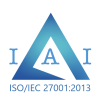The healthcare industry has always been at the forefront of innovation, constantly evolving to meet patient needs and adapt to new challenges. But in 2025, the stakes are higher than ever. With increasing cybersecurity threats, rising patient expectations, and complex compliance regulations like HIPAA, healthcare providers must make strategic IT investments to future-proof their operations.
If you are wondering where to focus your resources, here are the top tech investments every healthcare provider should consider.
1. Strengthen Cybersecurity to Safeguard Patient Data
Data breaches in healthcare aren’t just costly—they’re devastating. Sensitive patient information, if compromised, can lead to financial loss, reputational damage, and regulatory penalties. The healthcare industry faces the most expensive breach recoveries, coming in at $9.77 million on average.
To stay ahead, healthcare providers need more than basic antivirus software. Investing in Managed Security Services ensures round-the-clock monitoring, rapid threat detection, and proactive incident response. Vulnerability Assessments and Penetration Testing (VA/PT) are also critical to identifying and addressing potential weaknesses before malicious actors exploit them.
Takeaway: Protecting patient data isn’t just an IT concern; it’s a patient trust issue.
2. Cloud Adoption for Seamless Operations
Gone are the days when healthcare organizations could rely solely on on-premise servers. The shift to cloud-based solutions is transforming the way providers store, access, and analyze data. Beyond improving scalability, cloud adoption ensures critical information is accessible anytime, anywhere—a game-changer in patient care.
By working with trusted cloud providers like Microsoft Azure or AWS, healthcare providers can implement disaster recovery solutions that minimize downtime during unexpected events. Cloud-native technologies also support telemedicine and remote patient monitoring, ensuring care continuity even outside traditional clinical settings.
Takeaway: A robust cloud strategy isn’t just about efficiency—it’s about delivering better care.
3. Leverage AI for Operational Excellence
Artificial intelligence (AI) is no longer a futuristic concept—it’s a necessity. Tools like Microsoft CoPilot are enabling healthcare providers to streamline operations, enhance decision-making, and improve patient outcomes.
From automating routine tasks like scheduling and billing to providing predictive insights for patient care, AI is revolutionizing healthcare IT. For example, predictive analytics can forecast patient admissions, allowing hospitals to optimize staffing and resources. Similarly, AI-powered chatbots can improve patient engagement by answering FAQs and booking appointments, freeing up staff for more critical tasks.
Takeaway: AI isn’t replacing healthcare workers—it’s empowering them to focus on what matters most: patient care.
4. Harness Data Analytics for Better Decision-Making
In healthcare, data is everywhere—from electronic health records (EHRs) to lab results to patient feedback. However raw data is meaningless without proper analysis. That’s where Data and Analytics Services come in.
With advanced analytics, providers can identify trends, predict patient needs, and make informed decisions. For instance, analyzing patient readmission rates can help pinpoint gaps in post-discharge care, while real-time dashboards can provide insights into hospital performance. This data-driven approach isn’t just about improving operations; it’s about delivering personalized, effective care.
Takeaway: The ability to turn data into actionable insights separates good providers from great ones.
5. Prioritize Compliance Automation
Regulatory compliance in healthcare is complex and non-negotiable. Whether it’s HIPAA, GDPR, or state-specific mandates, falling short can result in hefty fines and lost patient trust. Manual compliance tracking is time-consuming and prone to errors, which is why many organizations are turning to automated solutions.
Microsoft Tenant Assessment, for example, helps healthcare providers ensure their Microsoft environment aligns with compliance standards while optimizing performance. It flags vulnerabilities, ensures proper documentation, and streamlines reporting—all while reducing the burden on IT teams.
Takeaway: Automating compliance isn’t just smart—it’s essential.
6. Enhancing Resilience with Disaster Recovery Plans
Unplanned downtime isn’t just inconvenient—it’s life-threatening in healthcare. Whether caused by cyberattacks, natural disasters, or human error, disruptions can delay critical care and jeopardize patient safety. A robust disaster recovery plan (DRP) ensures business continuity even during the worst scenarios.
By investing in cloud-based disaster recovery solutions, healthcare providers can back up data in real-time and quickly restore operations. Regular testing of these plans is equally important to ensure they work when needed most.
Takeaway: In healthcare, resilience isn’t optional—it’s mandatory.
7. Unified Communication Tools for Better Collaboration
Effective communication is the backbone of quality patient care. Tools like Unified Communications as a Service (UCaaS) bring together voice, video, messaging, and collaboration platforms into a single interface. This not only improves teamwork among healthcare staff but also enhances the patient experience.
For example, integrated communication tools enable faster consultations between specialists, streamlined patient updates, and better coordination during emergencies.
Takeaway: Better communication equals better outcomes—for both patients and providers.
Why These Investments Matter
Patient expectations are higher than ever; healthcare providers must adapt quickly to stay competitive. The right IT investments solve current challenges and position your organization for long-term success. From strengthening cybersecurity to leveraging AI and data analytics, these technologies empower providers to deliver the high-quality, personalized care that today’s patients demand.
As the industry navigates rising challenges, those who embrace innovation will emerge as leaders. At RTCS, we specialize in helping healthcare organizations implement cutting-edge IT solutions tailored to their unique needs. From Managed Security Services to Data Analytics and Cloud Services, we’re here to help you future-proof your operations.
Ready to explore how these investments can transform your healthcare IT? Contact us today to get started.
 We're Hiring
We're Hiring


